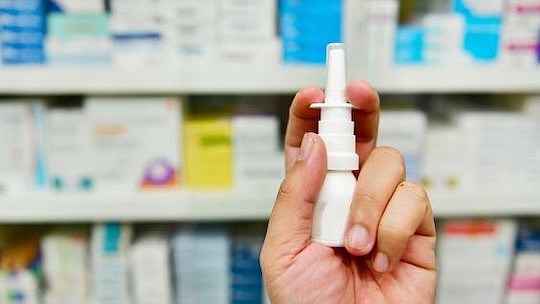Breaking Barriers: Over-the-Counter Opioid Overdose Remedies Remain Elusive for Some Houstonians, Baker Institute Study Finds
Francis Page Jr. | 2/8/2024, 9 a.m.
Despite the FDA's green light for over-the-counter (OTC) sale of opioid overdose remedies, a report from Rice University's esteemed Baker Institute for Public Policy reveals a stark reality: many Houston pharmacies are yet to stock the life-saving medication, leaving a critical gap in accessibility.
Narcan, hailed as a beacon of hope in reversing opioid overdoses, alongside its generic counterpart, received FDA approval for OTC sale last year, aiming to democratize access to this vital medication and empower bystanders to intervene effectively in crisis situations.
Surveys conducted across the Houston area uncovered a concerning trend: while 69% of pharmacies carried some form of naloxone, a staggering 71% of these outlets stored the medication behind counters or within locked cabinets. Additionally, 45% mandated pharmacist assistance, while 26% necessitated cashier intervention, with three pharmacies even demanding identification for purchase.
Katharine Neill Harris, the Alfred C. Glassell, III, Fellow in Drug Policy at the Baker Institute, expressed deep concern over the inconsistent policies dictating naloxone accessibility, citing their potential to impede life-saving interventions. "The invisibility of naloxone on pharmacy shelves diminishes its efficacy, while stigmatization may deter individuals from seeking assistance," Harris lamented. "This discordance in naloxone policies not only breeds confusion among customers but also perpetuates barriers to access."
Amidst mounting nationwide litigation against pharmacies implicated in the overdose crisis, Harris advocates for urgent action, urging implicated entities to prioritize the widespread availability of naloxone. "The FDA's approval of naloxone for OTC sale was a pivotal step towards curbing the devastating impact of opioid overdoses," Harris emphasized. "By proactively stocking Narcan and its generics on shelves, pharmacies can empower individuals in need and bystanders to intervene decisively, thus potentially saving countless lives."
In light of these findings, the Baker Institute underscores the imperative for collaborative efforts between policymakers, healthcare professionals, and community stakeholders to streamline naloxone access and combat the overdose crisis plaguing our communities.
For more information on opioid overdose prevention and resources, visit [relevant website]. Together, we can bridge the gap and safeguard the well-being of all Houstonians.
This news release can be found online at news.rice.edu.
Follow Rice News and Media Relations on Twitter @RiceUNews.




